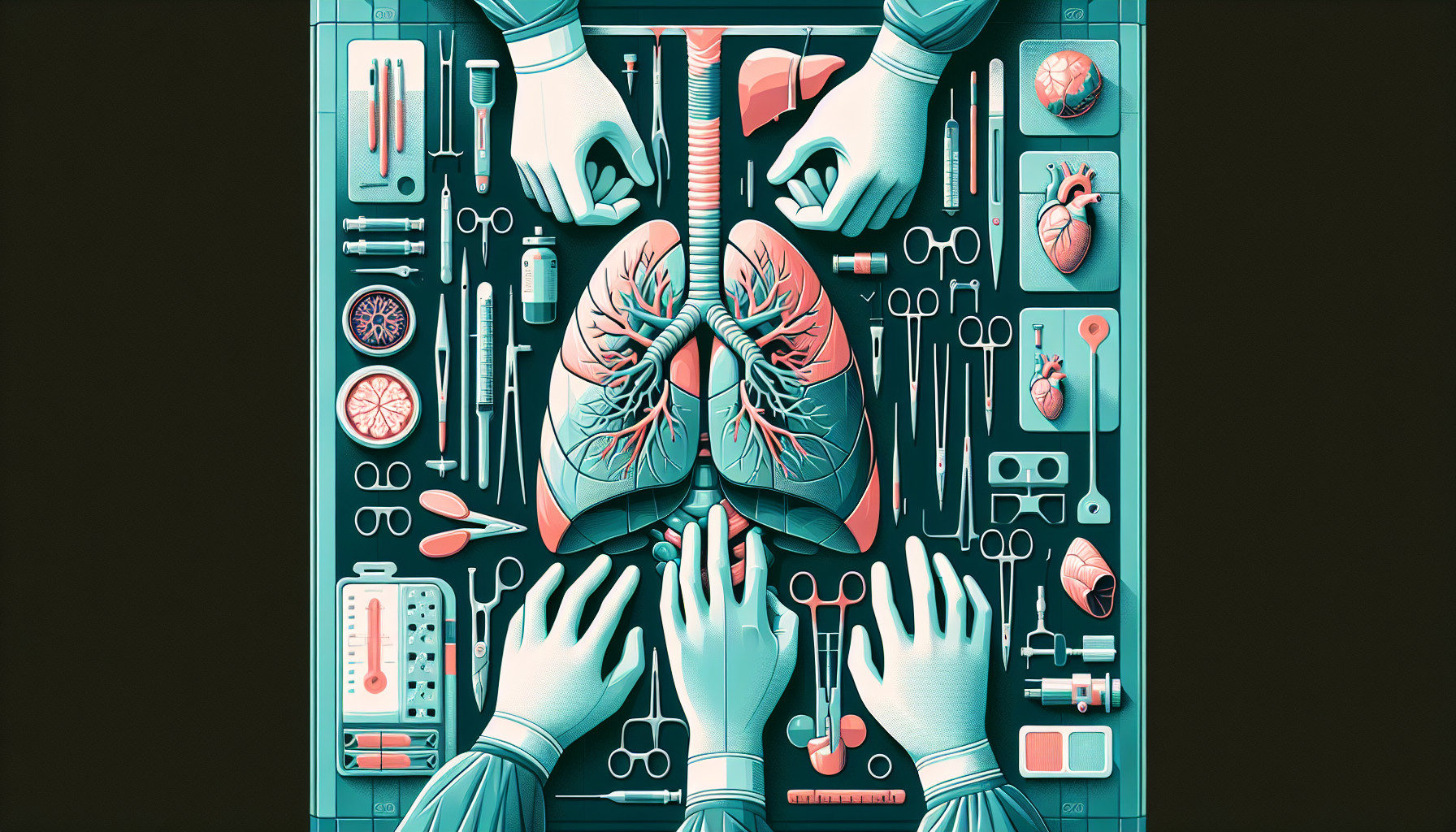Our Summary
This research paper looked at the factors that might increase the risk of lung function worsening after a specific type of surgery (wedge resection) in patients with early-stage lung cancer. They analyzed 237 patients and measured their lung function before and after the surgery. Patients were divided into two groups: those whose lung function reduced greatly and those whose lung function stayed relatively normal.
The study found that 16% of patients experienced a severe reduction in lung function. They found that patients with larger tumors (1 cm or larger) were more likely to have a significant reduction in lung function. Additionally, they found that the presence of pleural indentation (a condition that affects the lining of the lungs) was also a predictive factor for a severe reduction in lung function.
In conclusion, for patients undergoing this type of lung cancer surgery, the size of the tumor and the presence of pleural indentation may increase the risk of a severe decrease in lung function. These findings could be helpful in identifying patients who might be at higher risk and taking appropriate measures to mitigate these risks.
FAQs
- What factors were found to increase the risk of lung function worsening after wedge resection surgery?
- What percentage of patients experienced a severe reduction in lung function after the surgery?
- How can the findings of this research be used in the treatment of patients with early-stage lung cancer?
Doctor’s Tip
A doctor might advise a patient undergoing lung resection to discuss these potential risk factors with their healthcare team. They may recommend pre-operative testing to assess lung function and identify any factors that could increase the risk of complications. The doctor may also suggest post-operative monitoring and follow-up to ensure that the patient’s lung function is closely monitored and any issues are addressed promptly. Additionally, they may recommend lifestyle changes such as smoking cessation and regular exercise to optimize lung health before and after surgery.
Suitable For
Typically, patients who are recommended for lung resection are those with early-stage lung cancer who are deemed fit for surgery. Factors such as tumor size, location, and overall health of the patient are taken into consideration when determining if lung resection is the appropriate treatment option. Patients with smaller tumors, good overall health, and no significant comorbidities are more likely to be recommended for lung resection. Additionally, patients who are non-smokers or who have quit smoking are also more likely to be recommended for lung resection. Overall, the goal of lung resection is to remove the cancerous tissue while preserving as much healthy lung tissue and lung function as possible.
Timeline
Before the lung resection, the patient will undergo various tests and evaluations to determine their lung function and overall health. This may include pulmonary function tests, imaging scans, blood tests, and possibly a biopsy to confirm the presence of cancer.
After the surgery, the patient will typically stay in the hospital for a few days to recover. They may experience pain, shortness of breath, and fatigue during this time. The medical team will monitor their breathing and lung function closely to ensure there are no complications.
In the weeks and months following the surgery, the patient will gradually recover and regain their lung function. They may need to participate in pulmonary rehabilitation to help improve their breathing and physical endurance. It is important for the patient to follow their healthcare provider’s recommendations for post-operative care and attend follow-up appointments to monitor their progress.
What to Ask Your Doctor
Some questions a patient should ask their doctor about lung resection include:
- What type of lung resection surgery will I be undergoing?
- What are the potential risks and complications associated with this type of surgery?
- How will my lung function be monitored before and after the surgery?
- What factors could increase my risk of experiencing a severe reduction in lung function after the surgery?
- Will the size of my tumor or the presence of pleural indentation affect my lung function after surgery?
- What measures can be taken to reduce the risk of a severe decrease in lung function?
- What is the expected recovery time and rehabilitation process after the surgery?
- Are there any lifestyle changes or precautions I should take post-surgery to support my lung health?
- How often will I need follow-up appointments to monitor my lung function and overall health?
- Are there any alternative treatment options or additional support services available to me as a lung cancer patient undergoing surgery?
Reference
Authors: Miyoshi T, Ito H, Wakabayashi M, Hashimoto T, Sekino Y, Suzuki K, Tsuboi M, Moriya Y, Yoshino I, Isaka T, Hattori A, Mimae T, Isaka M, Maniwa T, Endo M, Yoshioka H, Nakagawa K, Nakajima R, Tsutani Y, Saji H, Okada M, Aokage K, Fukuda H, Watanabe SI. Journal: Eur J Cardiothorac Surg. 2023 Dec 1;64(6):ezad365. doi: 10.1093/ejcts/ezad365. PMID: 37930048
